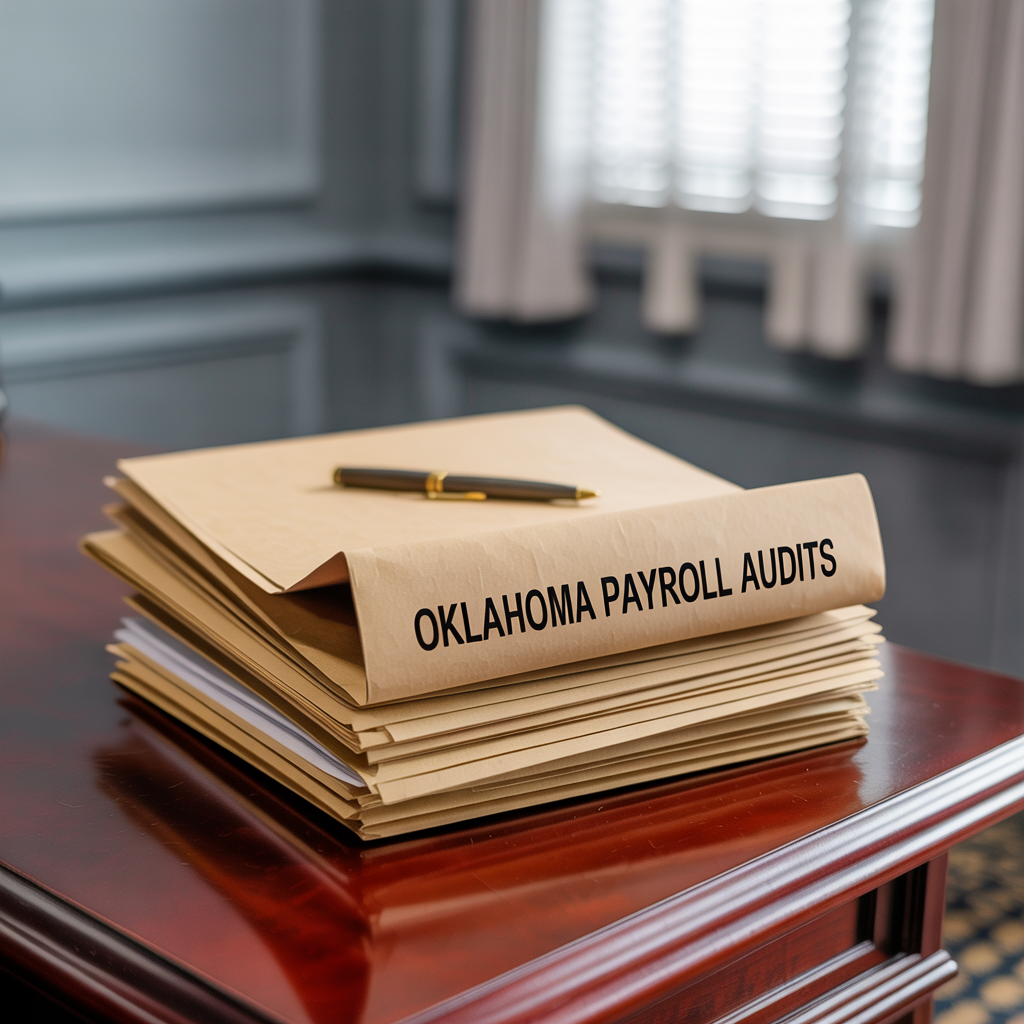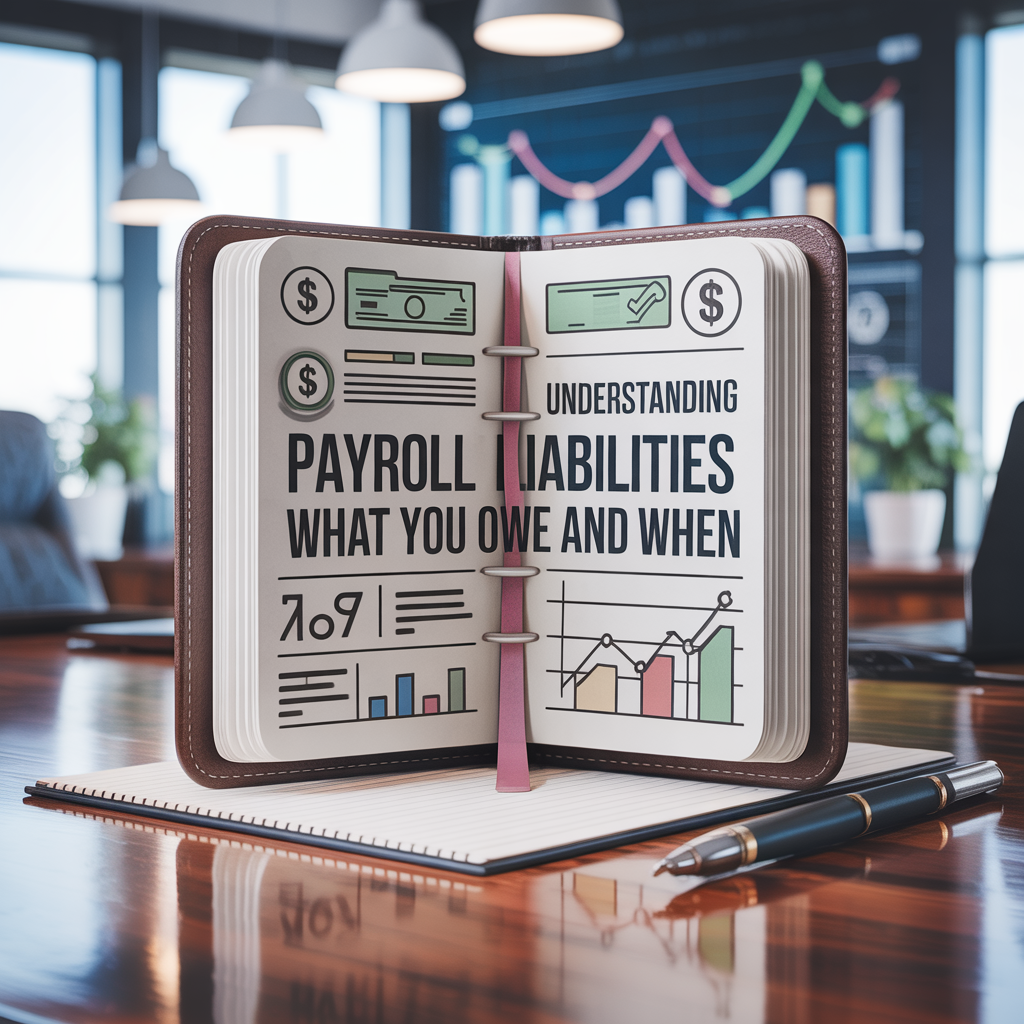Oklahoma Payroll Audits: What Triggers Them and How to Avoid One

Introduction: Don’t Let a Payroll Audit Catch You Off Guard
Most payroll audits in Oklahoma don’t happen by accident. They’re triggered by red flags — the kind that might already be buried in your filings.
Whether it’s the Oklahoma Employment Security Commission (OESC), the IRS, or the Oklahoma Tax Commission (OTC), audits typically begin when something looks off.
This post covers what commonly triggers payroll audits in Oklahoma and how you can avoid them before they start.
Who Conducts Payroll Audits in Oklahoma?
- IRS: Focuses on federal payroll tax compliance — Forms 941, 940, and W-2/1099 accuracy.
- OESC: Enforces Oklahoma’s unemployment tax laws and wage base reporting.
- Oklahoma Tax Commission (OTC): Handles Oklahoma state withholding and employee income tax filings.
Each agency has authority to initiate audits, and sometimes they share findings between each other.
Top Payroll Audit Triggers in Oklahoma
1. Worker Misclassification (1099 vs W-2)
If you're paying independent contractors who should be employees, you're a prime audit target. This is the #1 most common audit trigger.
2. Inconsistent or Late Tax Filings
Missing or late Form 941s, OW-9s, 940s, or W-2/W-3s often prompt red flags at both the IRS and state level.
3. Mismatched Payroll and Tax Filings
If your payroll expense on the P&L doesn’t match what you report on tax forms, auditors take notice.
4. High 1099 Activity with Minimal W-2 Staff
If most of your labor cost is paid via 1099s and you have few or no W-2 employees, expect questions.
5. Employee Complaints or Wage Claims
Any time a current or former employee reports late wages, unpaid overtime, or discrimination, agencies may review your full payroll setup.
What Auditors Look for During a Payroll Audit
When an audit begins, be prepared to provide:
- Full payroll registers and pay stubs
- Timecards or clock-in/clock-out logs
- IRS Forms 941, 940, W-2, W-3, and 1099s
- Oklahoma OW-9 and OW-2 filings
- Proof of tax deposits (EFTPS, OKTAP)
- Independent contractor agreements
- I-9 and W-4 forms
- Job descriptions and employee handbooks
They’re comparing your reported payroll to your financial records and your bank account activity — and looking for gaps.
How to Avoid Payroll Audits in Oklahoma
1. Classify Your Workers Correctly
Use the IRS 20-factor test or Form SS-8. Don’t rely on contractor status unless it’s legitimate and documented.
2. File All Payroll Returns On Time
That includes:
- IRS Forms 941 (quarterly) and 940 (annually)
- OTC Withholding Returns (OW-9/OW-2)
- W-2s and 1099s by January 31
3. Reconcile Payroll and Financial Statements
Your profit and loss statement should align with what you file on Forms 941 and OW-9. Clean, reconciled books are your best defense.
4. Log into OKTAP and IRS Systems Regularly
Don’t just assume your payroll provider is filing correctly — verify. You’re the one on the hook.
5. Retain Payroll Records for at Least 4–7 Years
Keep digital or physical records of all payroll runs, pay stubs, tax filings, and deposits.
How Boulanger CPA Helps You Stay Audit-Ready
At Boulanger CPA, we offer:
- Full-service payroll through iSolved
- Monthly CPA oversight of your filings
- Ongoing reconciliation between books and returns
- Internal worker classification reviews
- Response support in the event of an audit
Our clients don’t panic when a notice arrives — because we’ve already done the work to prevent problems.
Take the Guesswork Out of Payroll Compliance
If you’re not 100% sure your payroll is audit-proof, it’s time to talk.
📞 Call Boulanger CPA at
(405) 384-4900
📅 Or
schedule your free compliance strategy session today.
Internal Links
FAQ – Oklahoma Payroll Audit Triggers
How do payroll audits get triggered in Oklahoma?
They usually start due to misclassified workers, late filings, wage complaints, or mismatched tax data.
Can I prevent a payroll audit?
You can’t eliminate all risk, but staying compliant, consistent, and well-documented drastically reduces the odds.
Can a CPA help during an audit?
Yes — a CPA can manage the response, reduce penalties, and often prevent audits entirely through proper oversight.
Do I still need to worry if I use a payroll provider?
Yes. You’re still legally responsible — even if a third-party provider makes the mistake.

Marc Boulanger
Marc views his accounting business as an extension of his family. And while he holds a Bachelor of Arts in Business Administration and Accounting and a Masters of Science in Accounting, he values traveling around the country with his wife of 30 years and 5 kids, Marc learned that communication is the key to effective team work.


